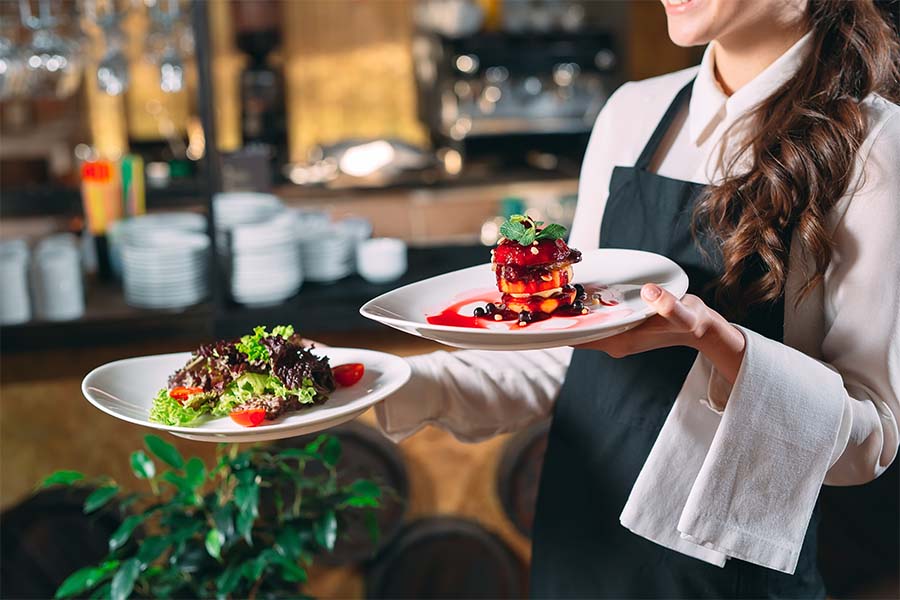The hospitality industry is all about creating unforgettable experiences for guests. From hotels and restaurants to cruise lines and event venues, providing exceptional customer experiences is crucial for success in hospitality. In this blog post, we will explore key lessons learned from hospitality industry leaders on how to create memorable customer experiences that leave a lasting impression and build customer loyalty.
Understanding the Importance of Customer Experience in Hospitality
The hospitality industry is competitive, with many businesses vying for the attention of potential customers. In such a saturated market, businesses need to differentiate themselves from their competitors. One of the most effective ways to stand out is by providing exceptional customer experiences.
Customer experience serves as a key differentiator in the hospitality industry. It’s no longer enough for businesses to offer basic services or products; guests expect a memorable and personalized experience. By delivering outstanding customer experiences, a hospitality business can set itself apart from its competitors and create a unique value proposition that attracts and retains customers.
When guests have a positive experience at a hotel, restaurant, or other hospitality establishment, they are more likely to remember it and choose it over competitors in the future. A remarkable customer experience can create a lasting impression, leading to increased customer loyalty and repeat business. Moreover, satisfied customers are more likely to leave positive reviews and recommendations, which can help a business gain a competitive advantage in the online world.

In a competitive industry like hospitality, where businesses are vying for customer attention and loyalty, delivering exceptional customer experiences can become a key competitive advantage. It can differentiate a business from its competitors, attract more customers, and drive business success in a competitive landscape.
In the hospitality industry, customer experience is paramount to success. It goes beyond providing good service; it encompasses the entire journey of a guest, from the initial booking to the moment they check out. Customer experience impacts customer satisfaction, loyalty, and advocacy, which are crucial factors for the success of any hospitality business.
Customer satisfaction is the foundation of a positive customer experience. When guests have a satisfying experience at a hotel, restaurant, or any other hospitality establishment, they are more likely to return in the future and recommend it to others. Satisfied customers are also more likely to leave positive reviews, which can influence the decisions of potential customers.
Loyalty is another critical aspect of customer experience. When guests have a memorable experience at a hospitality establishment, they are more likely to become repeat customers. Loyal customers are also more likely to spend more, recommend the business to others, and forgive occasional lapses in service, as they have a strong emotional connection and trust with the brand.
Customer advocacy is the pinnacle of customer experience. When guests become advocates for a hospitality business, they promote it to their friends, family, and online networks. Advocates are powerful brand ambassadors who can impact the reputation and success of a hospitality business through word-of-mouth marketing and online reviews.
Furthermore, in the age of social media and online reviews, customer experience plays a crucial role in shaping the reputation of a hospitality business. A negative customer experience can spread through online platforms, damaging the business’s reputation and resulting in the loss of potential customers.
In summary, customer experience is not a buzzword in the hospitality industry, but a fundamental aspect that impacts customer satisfaction, loyalty, and advocacy. Providing exceptional customer experiences is crucial for creating a positive reputation, building customer loyalty, and driving business success in the competitive hospitality industry.
Putting the Customer at the Center of the Experience
In the hospitality industry, putting the customer at the centre of the experience is crucial to creating memorable experiences that lead to customer satisfaction, loyalty, and advocacy. Understanding and anticipating customer needs and preferences are essential aspects of delivering exceptional customer experiences.
First, understanding customer needs and preferences requires thorough market research and data analysis. Hospitality industry leaders invest in gathering and analyzing data on customer preferences, behaviours, and feedback to gain insights into what matters most to their guests. This data-driven approach allows businesses to tailor their offerings and services to meet customer expectations and create personalized experiences.
Moreover, hospitality industry leaders go above and beyond to exceed customer expectations by anticipating their needs. They identify potential pain points in the customer journey and take proactive measures to address them before they become issues. For example, they may offer personalized welcome messages, provide room upgrades based on customer preferences, offer special amenities, or arrange tailored dining experiences that cater to specific dietary preferences or restrictions. These proactive efforts not only enhance the customer experience but also showcase a business’s commitment to going the extra mile to meet and exceed customer expectations.

One best practice in the hospitality industry is to create personalized welcome messages for guests. This can be in the form of a personalized note, a welcome email, or a special greeting upon arrival. This simple yet thoughtful gesture makes guests feel valued and appreciated, setting the tone for a positive experience.
Room upgrades are another effective way to exceed customer expectations. Hospitality industry leaders often analyze customer data to identify opportunities for room upgrades based on guest preferences or booking history. Upgrading guests to higher room categories or providing extra amenities can create a sense of exclusivity and luxury, leaving a lasting impression on the guests.
Special amenities can also enhance the customer experience. It could be as simple as providing complimentary snacks, drinks, or toiletries in the room, or offering unique services such as spa treatments, concierge services, or exclusive access to facilities. These special amenities add a touch of personalization and convenience, elevating the guest experience.
Tailored dining experiences are also a best practice in the hospitality industry. This could include offering personalized dining options based on dietary preferences, arranging private dining experiences, or providing recommendations for local restaurants or food experiences. Customized dining experiences cater to the unique tastes and preferences of guests, enhancing their satisfaction and creating memorable moments.
In conclusion, putting the customer at the centre of the experience is essential in the hospitality industry. Understanding and anticipating customer needs and preferences, and going above and beyond to exceed their expectations, are key strategies employed by hospitality industry leaders. Best practices such as personalized welcome messages, room upgrades, special amenities, and tailored dining experiences are examples of how businesses can create personalized and exceptional customer experiences that result in increased customer satisfaction, loyalty, and advocacy.
Training and Empowering Staff for Exceptional Service
In the hospitality industry, well-trained and empowered staff play a critical role in delivering exceptional customer experiences. They are the face of the business and the ones who interact with guests, making their training and empowerment crucial to creating memorable moments that lead to customer satisfaction, loyalty, and advocacy.
Hospitality industry leaders understand the importance of investing in staff training and development. They provide comprehensive training programs that cover not only technical skills but also soft skills, such as communication, problem-solving, and emotional intelligence. These training programs equip staff with the necessary knowledge and skills to provide consistent service excellence, regardless of their role or department within the organization.

Empowerment of staff is important. Empowered staff are confident, motivated, and engaged, and they have the autonomy to engage with customers, resolve issues, and create personalized experiences. Hospitality industry leaders empower their staff by providing them with clear guidelines, authority, and decision-making power to handle guest requests and resolve issues on the spot, without having to seek constant approval from higher management. This empowers staff to take ownership of the customer experience and make quick and effective decisions that result in guest satisfaction.
To empower staff to engage with customers, resolve issues, and create personalized experiences, hospitality industry leaders provide them with the following tips:
Foster a customer-centric culture: Leaders instil a culture that places the customer at the heart of everything the organization does. This culture is reinforced through regular communication, training, and recognition programs that highlight the importance of exceptional customer service.
Provide ongoing feedback and coaching: Regular feedback and coaching sessions help staff understand their strengths and areas for improvement. It allows them to develop their skills and knowledge, ensuring they are equipped to deliver exceptional service.
Encourage problem-solving and decision-making: Leaders encourage staff to think critically, solve problems, and make decisions. This includes empowering them to handle guest complaints or issues in a timely and effective manner, without having to escalate to higher management.
Recognize and reward exceptional service: Hospitality industry leaders recognize and reward staff who always deliver exceptional service. This could be through monetary incentives, recognition programs, or other forms of acknowledgment that motivate staff to continue providing outstanding service.
Provide opportunities for growth and development: Leaders provide opportunities for staff to further their skills and knowledge through extra training, certifications, or cross-departmental exposure. This not only enhances staff capabilities but also demonstrates the organization’s commitment to their growth and development.
In conclusion, well-trained and empowered staff are crucial to delivering exceptional customer experiences in the hospitality industry. Hospitality industry leaders invest in staff training and development to ensure consistent service excellence. Empowered staff gage with customers, resolve issues, and create personalized experiences, contributing to increased customer satisfaction, loyalty, and advocacy. Tips such as fostering a customer-centric culture, providing ongoing feedback and coaching, encouraging problem-solving and decision-making, recognizing and rewarding exceptional service, providing opportunities for growth and development, and empowering staff to deliver exceptional service and create memorable moments for guests.
Fostering a Culture of Hospitality and Service Excellence
Fostering a culture of hospitality and service excellence is crucial for organizations in the hospitality industry to always deliver exceptional customer experiences. This culture needs to be instilled throughout the organization, from top leadership to frontline staff, as it sets the foundation for creating a customer-centric mindset and ensuring that exceptional service is prioritized at every level of the organization.
Hospitality industry leaders who excel in customer service prioritize a customer-centric culture and integrate it into their core values and operations. They understand that providing exceptional customer experiences is not a one-time effort, but a continuous commitment that requires a culture that embraces and prioritizes service excellence.
For example, luxury hotel chains such as The Ritz-Carlton and Four Seasons are known for their exceptional customer service culture. They have a set of core values, known as “The Gold Standards” at The Ritz-Carlton and “The Four Seasons Service Culture” at Four Seasons, which outline their commitment to providing unparalleled service to their guests. These core values are embedded into their training programs, performance evaluations, and daily operations, ensuring that every staff member understands and embraces the importance of delivering exceptional service.
To create a positive work environment that fosters a culture of hospitality and service excellence, organizations can consider the following tips:
Lead by example: Leaders should set the tone by demonstrating exemplary customer service behaviours themselves. When top leadership models the behaviour they expect from their staff, it creates a culture where exceptional service is valued and emulated.
Communicate and reinforce core values: Organizations should communicate their core values related to hospitality and service excellence and ensure they are integrated into all aspects of the organization’s operations. This includes training programs, performance evaluations, recognition programs, and internal communications.
Recognize and reward exceptional service: Organizations should have recognition and reward programs in place to acknowledge and appreciate staff who deliver exceptional service. This could include monetary incentives, recognition events, or other forms of acknowledgment that motivate staff to continue providing outstanding service.

Provide ongoing training and development: Organizations should invest in continuous training and development programs to enhance staff’s skills and knowledge in delivering exceptional customer service. This includes not only technical skills but also soft skills such as communication, problem-solving, and emotional intelligence.
Encourage staff ownership of the customer experience: Organizations should empower staff to take ownership of the customer experience and make decisions that result in guest satisfaction. This includes providing them with the authority and decision-making power to handle guest issues and resolve them on the spot, without having to escalate to higher management.
Foster a positive and inclusive work environment: Organizations should create a positive and inclusive work environment where staff feel valued, respected, and appreciated. This includes promoting teamwork, open communication, and celebrating diversity in the workplace.
In conclusion, fostering a culture of hospitality and service excellence is crucial for organizations in the hospitality industry to deliver exceptional customer experiences. Hospitality industry leaders focus on a customer-centric culture and integrate it into their core values and operations. Tips such as leading by example, communicating and reinforcing core values, recognizing and rewarding exceptional service, providing ongoing training and development, encouraging staff ownership of the customer experience, and fostering a positive and inclusive work environment, can help organizations create a culture where exceptional service is valued and consistently delivered by all staff, from top leadership to frontline employees.
Utilizing Technology to Enhance the Customer Experience
Technology has become a significant driver in enhancing the customer experience in the hospitality industry. It has revolutionized how businesses interact with customers, streamline operations, and create seamless and convenient experiences. Hospitality industry leaders are leveraging various technology solutions to deliver personalized and efficient services that meet and exceed customer expectations.
One of the key areas where technology has transformed the customer experience is through the use of mobile apps. Many hotels, restaurants, and other hospitality businesses now offer mobile apps that allow customers to book rooms, make reservations, order food, access special offers, and interact with the business in a convenient and personalized manner. For example, major hotel chains such as Marriott and Hilton have mobile apps that provide a wide range of features to enhance the guest experience, including online check-in and check-out, mobile room keys, personalized recommendations, and instant messaging with hotel staff for requests and assistance.
Self-service kiosks are another example of how technology is being utilized to enhance the customer experience in the hospitality industry. Self-service kiosks are commonly used in restaurants, airports, and hotels to offer customers convenient and efficient ways to access information, make orders, and complete transactions. For instance, self-service kiosks in hotel lobbies can allow guests to check in or check out, make room upgrades, and request additional services, all in a user-friendly and efficient manner.
Personalized guest profiles powered by technology are also being used to create exceptional customer experiences. Hospitality businesses can use data and analytics to create guest profiles that include preferences, history, and other relevant information. This allows businesses to tailor their services and offerings to individual guests, creating a personalized experience that makes guests feel valued and appreciated. For example, hotels can use guest profiles to provide customized room amenities, recommendations for local attractions, and personalized dining experiences based on dietary preferences or past dining choices.
While technology solutions are often associated with larger hospitality businesses, small and medium-sized hospitality businesses can also adopt and implement technology solutions to enhance the customer experience. There are various affordable and scalable technology options available, such as online reservation systems, email marketing platforms, and customer relationship management (CRM) tools, that can help smaller businesses streamline operations, capture guest data, and deliver personalized experiences. For example, a small boutique hotel can implement an online booking system that allows guests to easily make reservations and customize their stay preferences, or a local restaurant can use a CRM tool to capture guest information and send targeted promotions or offers.
In conclusion, technology plays a significant role in enhancing the customer experience in the hospitality industry. Hospitality industry leaders are leveraging technology solutions such as mobile apps, self-service kiosks, and personalized guest profiles to create seamless and convenient experiences for customers. Small and medium-sized hospitality businesses can also adopt and implement technology solutions to enhance the customer experience and streamline operations. By leveraging technology effectively, hospitality businesses can create personalized, efficient, and memorable experiences that contribute to increased customer satisfaction, loyalty, and advocacy.
Listening to Customer Feedback and Continuous Improvement
Actively listening to customer feedback and using it as a tool for continuous improvement is crucial in the hospitality industry. It allows businesses to understand the needs and preferences of their customers, identify areas of improvement, and make necessary changes to deliver exceptional customer experiences.
An example of a hospitality industry leader that actively listens to customer feedback is Marriott International, one of the largest hotel chains globally. Marriott actively encourages its guests to provide feedback through various channels, such as online surveys, guest reviews, and direct feedback forms. They have a dedicated team that analyzes this feedback and uses it to identify areas for improvement in their services, amenities, and overall guest experience.
Marriott has a robust system in place for collecting and analyzing customer feedback. They use a combination of automated surveys, post-stay emails, and guest reviews on various platforms to gather feedback from their guests. This feedback is then analyzed to identify common themes, patterns, and areas that need improvement. For example, if multiple guests provide feedback about the need for better lighting in the rooms, Marriott may invest in improved lighting fixtures in their rooms to address this concern.

In addition to addressing specific issues, Marriott also uses customer feedback to drive continuous improvement. They regularly review and analyze feedback to identify trends and opportunities for enhancement across their properties. This can lead to more comprehensive changes, such as updates to their loyalty program, revamping of their online booking process, or improvements to their food and beverage offerings.
Marriott also empowers their employees at all levels to take ownership of customer feedback and act on it. Frontline staff are encouraged to actively seek feedback from guests during their stay and address any issues proactively. Marriott also recognizes and rewards employees who go above and beyond in delivering exceptional customer service based on customer feedback. This creates a culture of continuous improvement and customer-centricity throughout the organization.
To effectively collect, analyze, and act on customer feedback, hospitality businesses can implement feedback collection mechanisms such as online surveys, guest reviews, and direct feedback forms. It is important to have a designated team or individual responsible for analyzing feedback and driving improvement initiatives. Regular reviews of feedback data, identifying patterns and trends, and developing action plans based on the insights gathered can lead to meaningful changes that enhance the overall customer experience.
In conclusion, actively listening to customer feedback and using it as a tool for continuous improvement is essential in the hospitality industry. Hospitality industry leaders, such as Marriott International, who prioritize customer feedback and act on it, can enhance their services, offerings, and overall customer experience. Collecting, analyzing, and acting on customer feedback can lead to tangible improvements in operations, services, and guest satisfaction, resulting in increased customer loyalty and advocacy.
Conclusion
Creating memorable customer experiences in the hospitality industry is a multi-faceted approach that requires a customer-centric mindset, well-trained and empowered staff, a culture of hospitality and service excellence, utilisation of technology, and active listening to customer feedback for continuous improvement. Hospitality businesses that focus on these key elements are more likely to exceed customer expectations and foster loyalty, resulting in a competitive edge in today’s competitive hospitality landscape.
Putting the customer at the centre of the experience is paramount. Understanding and anticipating customer needs and preferences allows hospitality businesses to tailor their services and offerings to meet and exceed customer expectations. Personalized welcome messages, room upgrades, special amenities, and tailored dining experiences are examples of best practices that can enhance the customer experience and create lasting memories.
Training and empowering staff play a critical role in delivering exceptional customer service. Well-trained staff who are knowledgeable, courteous, and proactive in engaging with customers can elevate the experience. Hospitality industry leaders invest in staff training and development programs to ensure consistent service excellence and empower employees to resolve issues, create personalized experiences, and take ownership of the customer experience.
Fostering a culture of hospitality and service excellence throughout the organization is key to creating a customer-centric environment. Leading by example, recognizing and rewarding exceptional service, and encouraging staff to take ownership of the customer experience can create a positive work environment and instil a customer-centric mindset in all employees, from top leadership to frontline staff.
Leveraging technology can enhance the customer experience. Mobile apps, self-service kiosks, and personalized guest profiles are examples of how hospitality industry leaders are leveraging technology to create seamless and convenient experiences for customers. Small and medium-sized hospitality businesses can adopt and implement technology solutions that align with their business model and customer needs to enhance the experience.
Listening to customer feedback and using it as a tool for continuous improvement is essential. Hospitality industry leaders who seek and respond to customer feedback can identify areas for improvement, make necessary changes, and enhance their services and offerings. Collecting, analyzing, and acting on customer feedback can drive meaningful improvements and foster customer loyalty.
Creating memorable customer experiences in the hospitality industry requires a holistic approach that encompasses understanding and anticipating customer needs, well-trained and empowered staff, a culture of hospitality and service excellence, utilization of technology, and active listening to customer feedback for continuous improvement. By prioritizing these key elements, hospitality businesses can create exceptional experiences that leave a lasting impression on their customers, resulting in increased customer satisfaction, loyalty, and advocacy in today’s competitive hospitality landscape.
As a leading hospitality consulting firm in Australia, Scott Aussie can help hospitality operators across the country create memorable customer experiences. Our team of experienced consultants can provide tailored solutions and strategies to elevate the customer experience, from developing personalized service protocols to implementing innovative technology solutions. Contact Scott Aussie today to learn how we can support your hospitality business in creating exceptional customer experiences that drive customer satisfaction, loyalty, and advocacy.










